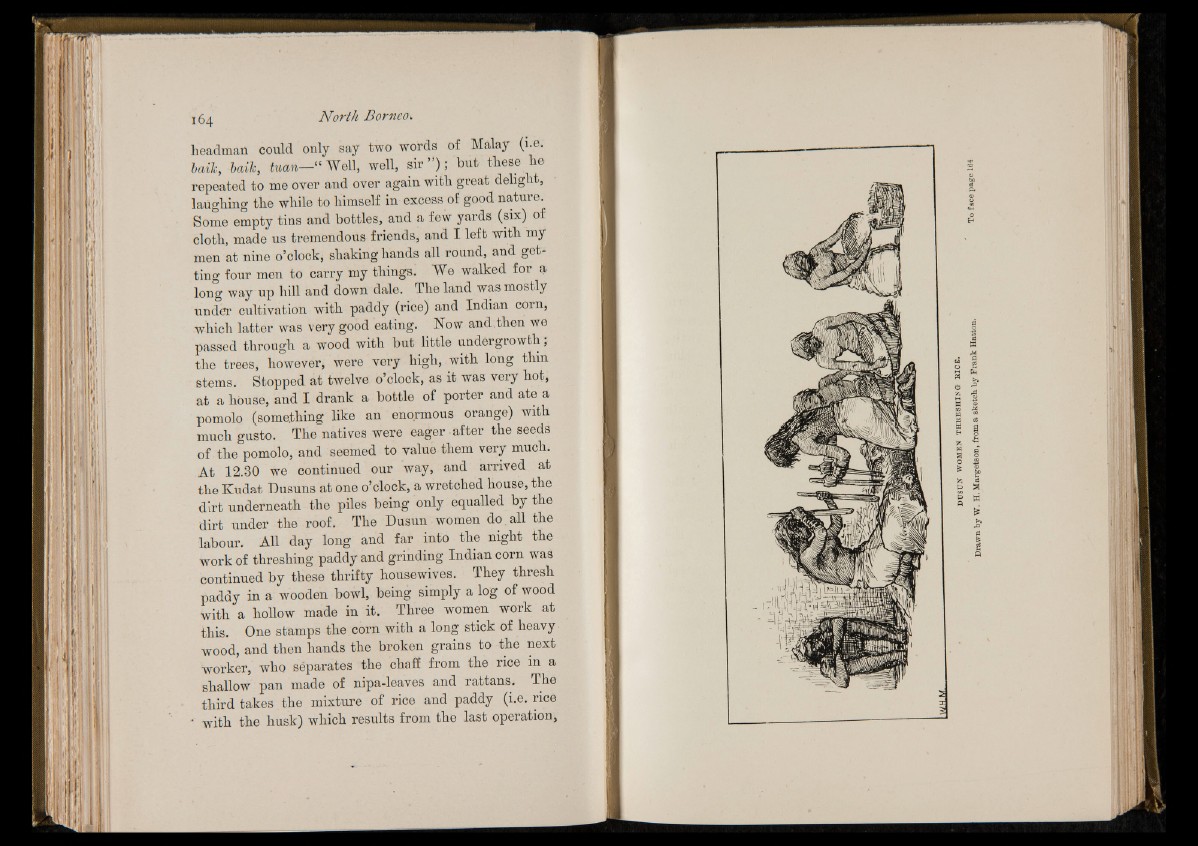
headman conld only say two words of Malay (i.e.
bail, bail, tuan—“ Well, well, s ir ’’) ; but these he
repeated to me over and over again with great delight,
laughing the while to himself in excess of good nature.
Some empty tins and bottles, and a few yards (six) of
cloth, made us tremendous friends, and I left with my
men at nine o’clock, shaking hands all round, and get
ting four men to carry my things. We walked for a
long way up hill and down dale. The land was mostly
under cultivation with paddy (rice) and Indian corn,
which latter was very good eating. Now and.then we
passed through a wood with but little undergrowth ;
the trees, however, were very high, with long thm
stems. Stopped at twelve o’clock, as it was very hot,
at a house, and I drank a bottle of porter and ate a
pomolo (something like an enormous orange) with
much gusto. The natives were eager after the seeds
of the pomolo, and seemed to value them very much.
At 12.30 we continued our way, and arrived at
the Kudat Dusuns at one o’clock, a wretched house, the
dirt underneath the piles being only equalled by the
dirt under the roof. The Dusun women do. all the
labour. All day long and far into the night the
work of threshing paddy and grinding Indian corn was
continued by these thrifty housewives. They thresh
paddy in a wooden bowl, being simply a log of wood
with a hollow made in it. Three women work at
this. One stamps the corn with a long stick of heavy
wood, and then hands the broken grains to the next
worker, who séparâtes the chaff from the rice in a
shallow pan made of nipa-leaves and rattans. The
third takes the mixture of rice and paddy (i.e. rice
• with the husk) which results from the last operation,